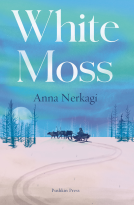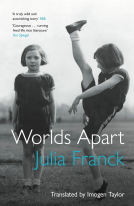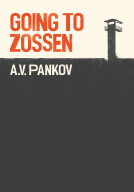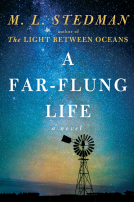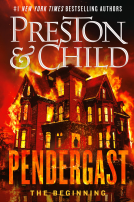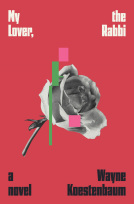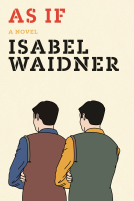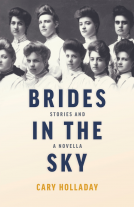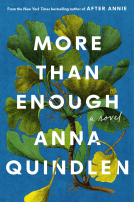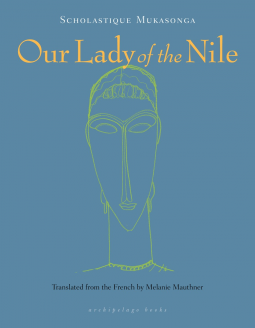
Our Lady of the Nile
A Novel
by Scholastique Mukasonga
This title was previously available on NetGalley and is now archived.
Send NetGalley books directly to your Kindle or Kindle app
1
To read on a Kindle or Kindle app, please add kindle@netgalley.com as an approved email address to receive files in your Amazon account. Click here for step-by-step instructions.
2
Also find your Kindle email address within your Amazon account, and enter it here.
Pub Date Sep 16 2014 | Archive Date Sep 16 2014
Steerforth Press | Archipelago
Description
Scholastique Mukasonga drops us into an elite Catholic boarding school for young women perched on the edge of the Nile. Parents send their daughters to Our Lady of the Nile to be molded into respectable citizens and to escape the dangers of the outside world. Fifteen years prior to the 1994 Rwandan genocide, we watch as these girls try on their parents’ preconceptions and attitudes, transforming the lycée into a microcosm of the country’s mounting racial tensions and violence. In the midst of the interminable rainy season, everything unfolds behind the closed doors of the school: friendship, curiosity, fear, deceit, prejudice, and persecution. With masterful prose that is at once subtle and penetrating, Mukasonga captures a society hurtling towards horror.
Advance Praise
"In a writing style both rough and tender, Our Lady of the Nile depicts a society inevitably heading towards horror. [...] Poignant and tenacious." - Christine Rousseau, Le Monde
"Whoever has loved Africa will be touched by this story [...] It is the very essence of Africa, an immense Africa that will absorb even this terrible genocide." - Joël Prieur, Minute
"Strangely, it is in this incredibly light novel, that one best understands the ethnic, political, and religious reasons behind the massacre of the mysterious Tutsis." - Arnaud Viviant, Regards
"[After she was awarded the Prix Renaudot] I went out and procured every work by Scholastique Mukasonga. [...] Never has a prize been more merited." - Frédéric Beigbeder, Lire
Marketing Plan
US author tour: New York (Brooklyn Book Festival), San Francisco Bay area, and elsewhere.
Nationally broadcast author interviews.
Thursday, Sept. 18, 7:00 PM City Lights – Conversation w/ Scott Esposito, 261 Columbus Avenue, San Francisco, CA 94133 (415) 362-8193 interpreter: Aubrey Gabel
Friday, Sept. 19, 5:00 PM Event at University of California – Berkeley, Library of French Thought, 4229 Dwinelle Hall, Berkeley, CA 94720, interpreter: Aubrey Gabel, Reception to follow @ 6:30 PM, Dinner w/ Jill & QUs @ Gather Restaurant, 2200 Oxford Street, Berkeley, CA 94704
Sunday, Sept. 21, Brooklyn Book Fair
Tuesday, Sept. 23, 9:45AM visit to the Spence School, 22 East 91st Street, New York, NY 10128
Tuesday, Sept. 23, 7:00 PM Cocktail Party + Conversation w/ Bhakti Shringarpure at Dumbo Sky, 10 Jay Street #903, New York, NY 11201, interpreter: Lucinda Karter
Available Editions
| EDITION | Other Format |
| ISBN | 9780914671039 |
| PRICE | $20.00 (USD) |
Average rating from 5 members
Featured Reviews
 Susan D, Reviewer
Susan D, Reviewer
There is no better lycee than Our Lady of the Nile.
Nor is there any higher...."We're so close to heaven,"
whispers Mother Superior....
The school year coincides with the rainy season, so the lycee is often wrapped in clouds. Sometimes, not often, the sun peaks through and you can see as far as the big lake, that shiny blue puddle down in the valley.
It's a girls' lycee. The boys stay down in the capital.
The reason for building the lycee so high up was to protect the girls, by keeping them far away from the temptations and evils of the big city. Good marriages await these young lycee ladies, you see. And they must be virgins when they wed - or at least not get pregnant beforehand. Staying a virgin is better, for marriage is a serious business. (loc 21)
And so the novel begins (well this is not the precise beginning, but very close). We are introduced to the setting, a girls' school, a high school, to prepare Rwandan girls from elite families for thier future. It is the 1970s in a very young country and the future for most is thought to be marriage to important men, men important to the country's future.
This school is located close to the head of the Nile and near to that site is the Madonna for whom the school is named, Our Lady of the Nile, but Our Lady of the Nile was black; her face was black, her hands were black, her feet were black. Our Lady of the Nile was a black woman, an African woman, a Rwandan woman - and indeed, why not? (loc 60)
In an understated fashion that serves to underscore the simmering hatred that will erupt in an all too real fashion in later years, Mukasonga creates a world where there are classes of Rwandans within the school. Through the words of Gloriosa, a Hutu student, we learn
Two Tutsi for twenty pupils is the quota, and because of that I know some real Rwandan girls of the majority people, the people of the hoe, friends of mine, who didn't get a place in high school. As my father likes to tell me, we'll really have to get rid of these quotas one day, it's a Belgian thing.
(loc 285)
Along with this struggle within the African community, there is the cultural struggle to be expected in a new nation caught between influences -- the pull of the European vs the call of the African. The history of the missions vs the call of old ways.
There is so much here in this quiet novel (quiet until the final chapters at least). I found this to be very interesting, providing insights into what came later in the horrific killings. It confirms my wish to read more African fiction.
A copy of this book was provided by the publisher through NetGalley in return for an honest review.
I try really hard to keep up with what happens in the world, but sometimes it is difficult to understand what happens in a foreign county, a foreign culture and the horrific devastation of the genocide that occurred in Rwanda is no exception. Sure, I remember the news and yes I saw the movie Hotel Rwanda, but still it is just so difficult to comprehend. I wanted to read this book because I thought it would shed further light for me on happened there.
This is a small book that carries the seeds of the horrors yet to be in Rwanda. The story takes place at an elite, all girls’ boarding school . We can see through the daily lives of the girls in this school , the Hutus looking down on the Tutsi girls , the politics in and outside of the school . It's about organized religion , a black Madonna , an abusive priest , the native beliefs and superstitions and a witch doctor , a Tutsi girl elevated in the eyes of her family and neighbors because she was among the elite girls getting an education , and the beginnings of the horrific events.
I have to admit that I did not understand some of what happened in this story but then how can we possibly understand what ultimately happened in the Rwanda Genocide .Perhaps that is what the author is trying to impart , just a little understanding of the horror that occurred there . She succeeds in doing so.
I'm sometimes a little bit leery of reading a book that has been translated because sometimes the language just doesn't flow in English as it might have in the original language . That is not the case with this book which was originally published in French on 2012 and won several literary prizes. I would recommend this.
Thanks to Steerforth Press and NetGalley for the opportunity to read this story .
 Mandy J, Reviewer
Mandy J, Reviewer
Set in an elite Catholic girls’ boarding school in 1970s Rwanda, we watch how the seeds of the coming Rwanda Genocide can be seen in attitudes of the staff and pupils. Sent to the school to prepare for their future as wives of the new nation’s ruling class, the girls are as much victims of their circumstances as the population in general. Malory Towers this is not. It’s a frightening glimpse into a world where racial prejudice, intolerance and bullying is rife, and the book sets the scene for what happens in the 1990s. The sense of menace grows throughout the book. The author herself knows what she is talking about. She lived through the ethnic conflict in her country and lost 27 members of her family before finding refuge in France. I’ve always found the Rwandan Genocide quite hard to understand but this book gave me a much clearer idea of what it was all about, and for that alone I admire the writing of it. I could quibble and comment on its failings as a good novel – the dialogue is sometimes unconvincing, the characterisation not always adequately in-depth - but the subject and its exposition are so compelling that it seems churlish to criticise it. Original and well-conceived, this is an eye-opening and thought-provoking novel and one which I heartily recommend.
Readers who liked this book also liked:
Publishers Lunch
General Fiction (Adult), Nonfiction (Adult), Teens & YA
